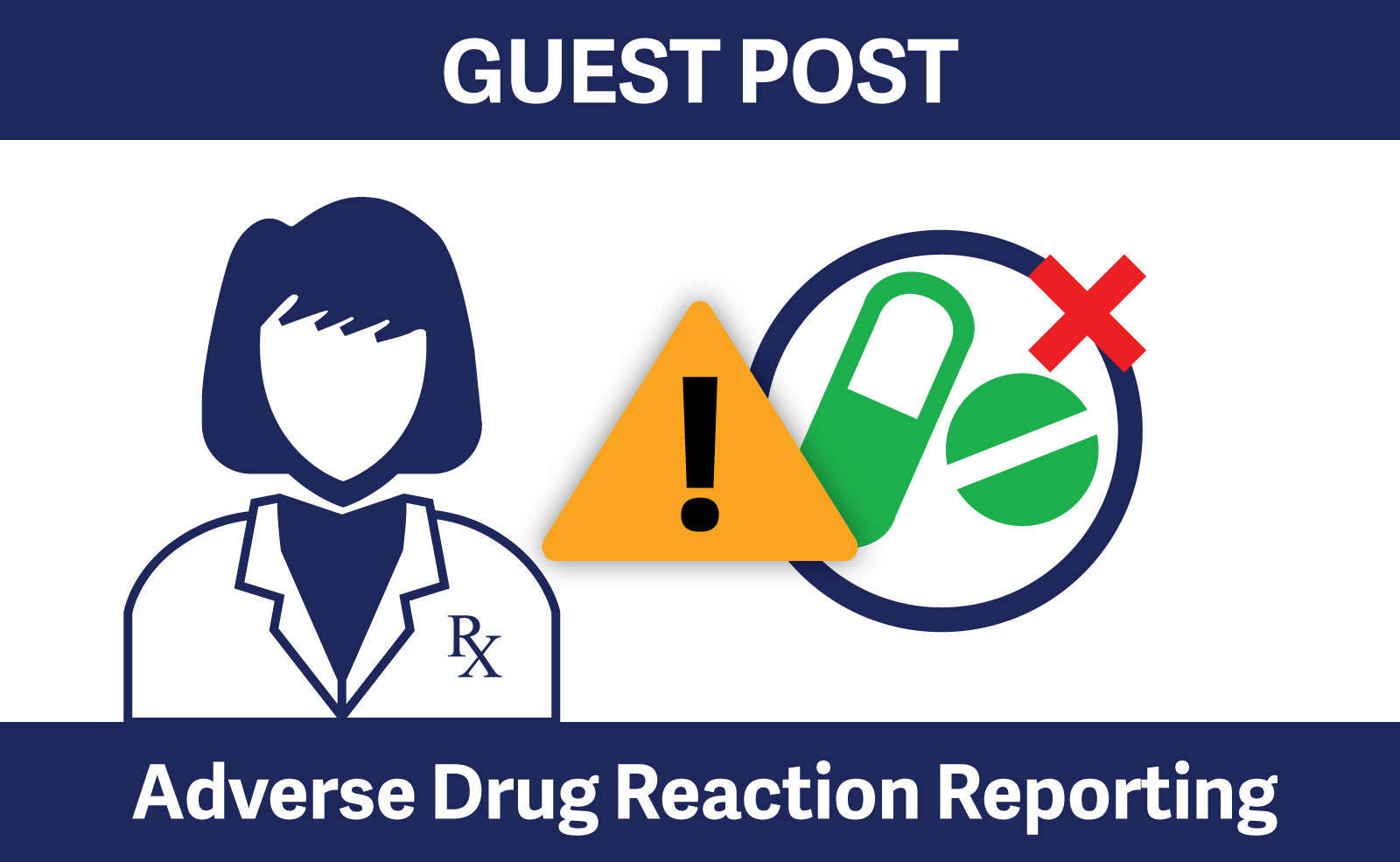
Guest Post: Adverse Drug Reaction Reporting is Your Responsibility
Adverse Drug Reaction reporting is a professional responsibility for pharmacists in British Columbia. Section 12(7) of the Health Professions Act Bylaws, Schedule F, Part 1 states that “If an adverse drug reaction as defined by Health Canada is identified, the full pharmacist must notify the patient’s practitioner, make an appropriate entry on the PharmaNet record and report the reaction to the appropriate department of Health Canada”.
Patient safety is a fundamental cornerstone of health care. Unfortunately, all health products have both benefits and risks. Before a health product is marketed, safety and efficacy data is limited to clinical trial testing, which provides an understanding of the effectiveness and benefits of a product and a range of possible adverse reactions. This means some of the risks may be unknown at the time of marketing and additional information about risks can only become known once a health product is more widely used.
Health Canada, through the Canada Vigilance Program, is responsible for collecting and assessing Adverse Drug Reaction (ADR), also known as Adverse Reaction (AR), reports for health products marketed in Canada. Health Canada continues to monitor the safety profile of health products once they are marketed to verify that the benefits of the products continue to outweigh the risks. Adverse reaction information may contribute to the detection of health product related safety issues as well as the benefit/risk assessments of these products. The effectiveness of an adverse reaction monitoring and reporting program depends on the awareness and involvement of all healthcare providers. Under-reporting of ARs is a recognized problem and has the potential to compromise the ability of Health Canada to warn Canadians of potential health risks. A reporter’s lack of awareness about adverse reaction monitoring exacerbates the problem of under-reporting. It is, therefore, essential to understand the AR reporting process in order to keep our patients safe.
Today, the focus of pharmacy practice is ensuring safe and effective use of medicines. As such, pharmacists play a key role in drug safety by contributing to the prevention, identification, documentation and reporting of adverse reactions. While the reporting of adverse reactions is the responsibility of everyone involved in a patient’s care, pharmacists should be central in the reporting process because they are clinically trained about the mechanisms and behaviour of drugs and to focus on appropriate medication use, as well as clinical outcomes.
Pharmacists have the potential to improve therapeutic outcomes and patients’ quality of life. This is the most compelling reason for pharmacy professionals to prioritize adverse reaction reporting and embrace it as a professional responsibility.
An accredited, online educational program on Adverse Drug Reactions has been developed by The Canada Vigilance Program and Continuing Pharmacy Professional Development at UBC (UBC CPPD).
Learn more about the free accredited program and how to participate by visiting the Adverse Drug Reaction Reporting: Your Role in Patient Safety online training program.

Thanh Vu, BSc (Pharm), PharmD, RPh
Thanh Vu works with Health Canada as the Coordinator of the Canada Vigilance Regional Office in British Columbia. She is responsible for providing front-line regional coordination pertaining to Health Canada’s national adverse reaction reporting program, and promotes the voluntary adverse reaction reporting program by developing and sustaining external partnerships and collaborating on projects and activities. Her collaborations with UBC Continuing Pharmacy Professional Development and the BC Patient Safety and Learning System aim to address some of the barriers to reporting by increasing awareness about adverse reactions and leveraging existing patient safety reporting mechanisms to support adverse reaction reporting in British Columbia. In addition to her administrative role, Thanh also participates in teaching activities at UBC and UNBC.
Thanh earned her undergraduate and Doctor of Pharmacy degrees from the University of British Columbia. She is a Clinical Associate Professor with the Faculty of Pharmaceutical Sciences.
- Guest Post, adverse drug reaction

 Share
Share


